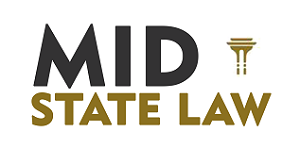Information and reference checks are a method used by multiple managers to get data about their employees. A background investigation reduces whether an applicant may be qualified or unqualified for the position offered. The things that your employees look at are a record of your criminal conviction, motor vehicle violation, poor credit history or misrepresentation in work history.
When it comes to reference checks, the employee contacts the applicant’s former boss, supervisors, coworkers and educators to verify previous employment and to gather information about the individual’s knowledge, skills and character.
Good thing there are public criminal record platforms now like Lookupinmate, wherein you would be able to see someone’s jail records. It will also provide you with enough details about one’s court & arrest records, mugshots and even judicial reports if there’s any.
Reasons why criminal record checks are conducted
- Safety
One of the main reasons why organizations carry out criminal checks is so that they can avoid harm or legal liability of various types to the employer or other people in the organisation. This includes harm to ;
- Other workers by sexual harassment or workplace violence.
- Sexual assault on the business premises.
- Financial loss.
- To maximise productivity
Not organisations usually say you should hire the best and reject the rest. Past performance usually shows the employee how you will conduct duties in future. It also shows your professionalism, productivity, job skills and interpersonal communication abilities.
- Data verification
When your employee issues their information you should verify it first, and this will help you know if the application is genuine or not. This information can also offer insight into the applicant’s reliability and motivation.
How to carry out an inmate criminal record check legally?
Even if you have the authority to conduct a criminal record check on your employees, you must follow various regulations to ensure you don’t violate any of the applicant’s rights. In this article, we will guide you on how to do this.
The steps are;
- Ask for the applicant’s permission
Before you collect any of your applicant’s data, you should ask for permission first. This is very important because processing a person’s sensitive data without their knowledge is not allowed.
- Only ask reasonable questions
Once your application has given you the go-ahead to conduct a background check on them, make sure you ask them the appropriate questions. You should limit your questions to what you require from them regarding their employment history. Some of the questions you can ask your applicants are;
- Their position in their previous job.
- How much do they get paid?
- Why did they resign?
When you ask applicants irrelevant questions about their past employment history, you violate their privacy.
- Know what is sensitive information and what is not
Some of the sensitive information include ;
- Data about their race, ethnic origin, marital status and political affiliations.
- Information about a person’s health, sexual life or any proceeding for any particular criminal offence.
Conclusion
As an employee looking for new employees to fill various positions, you need to carry out a criminal record check, and you should also know how to carry them out so that you don’t end up violating their privacy.






